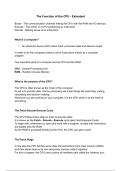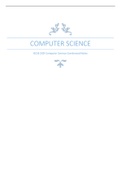Ocr gcse computing - Study guides, Class notes & Summaries
Looking for the best study guides, study notes and summaries about Ocr gcse computing? On this page you'll find 62 study documents about Ocr gcse computing.
Page 4 out of 62 results
Sort by
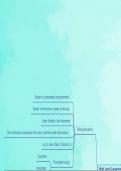
-
OCR GCSE Computer Science Mindmap - 2.5 Programming Languages and IDEs
- Class notes • 1 pages • 2024
- Available in package deal
-
- $6.49
- + learn more
This mindmap covers all you need to know in scetion 2.5 of the OCR GCSE Computer Science specification. It is a comprehensive, visual way to see everything you need to know, and was written by a student who achieved 10 grade 9s at GCSE! Be sure to check out all the other mindmaps in this series!
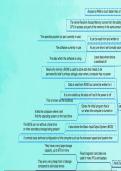
-
OCR GCSE Computer Science - 1.2 Memory and Storage
- Summary • 1 pages • 2024
- Available in package deal
-
- $9.73
- + learn more
Created by a student who achieved 10 grade 9s at GCSE, this mindmap covers everything you need to know from Section 1.2 of the OCR GCSE Computer Science specification, Memory and Storage. Be sure to check out the other mindmaps in this series!
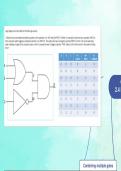
-
OCR GCSE Computer Science - 2.4 Boolean Logic
- Class notes • 1 pages • 2024
- Available in package deal
-
- $9.60
- + learn more
Created by a student who achieved 10 grade 9s at GCSE, this mindmap covers everything you need to know from Section 2.4 of the OCR GCSE Computer Science specification, Boolean Logic. Be sure to check out the other mindmaps in this series!
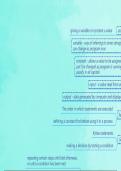
-
OCR GCSE Computer Science - 2.2 Programming Fundamentals
- Class notes • 1 pages • 2024
- Available in package deal
-
- $10.38
- + learn more
Created by a student who achieved 10 grade 9s at GCSE, this mindmap covers everything you need to know from Section 2.2 of the OCR GCSE Computer Science specification, Programming fundamentals. Be sure to check out the other mindmaps in this series!
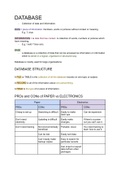

-
Databases Computer Science OCR GCSE As-level A-level (9-1) Computer Science Revision Workbook, ISBN: 9781292131191
- Interview • 4 pages • 2022
- Available in package deal
-
- $3.89
- + learn more
Notes regarding databases for gcses and a level. Detailed explanation of the most important topic for Computer systems. Helps with homework and better exam results. Written by a previous student, so included only the most essential material.
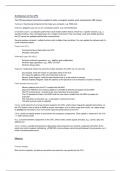
-
OCR J277 Computer Science GCSE Paper 1 - Grade 9 notes - EVERYTHING you need to know for theory
- Summary • 19 pages • 2023
-
- $9.73
- + learn more
Includes EVERYTHING you need to get a grade 9 in paper 1: - systems architecture - memory and storage - computer networks, connections and protocols - network security - systems software - ethical, legal, cultural and environmental impacts of digital technology
Detailed summary on Unit 1.1 Systems Architecture from OCR GCSE Computer Science. Covers the function of the CPU, Von Neumann Architecture, Factors affecting Speed and Embedded Systems.
Complete Notes for GCSE Computer Science Ideal for OCR Exam Board. 8000+ Words Each Unit (1-8) clearly labelled.
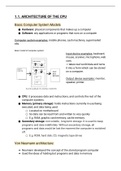
-
Summary Notes for Systems Architecture, Memory and Storage - Paper 1: Computer Systems for Computer Science OCR GCSE (9-1)
- Summary • 4 pages • 2023
-
- $11.55
- + learn more
Paper 1: Computer Systems for Computer Science OCR GCSE (9-1). Summary Notes for Systems Architecture, Memory and Storage. It covers: - 1.1. Architecture of the CPU - 1.2. CPU Performance - 1.3. Memory - 1.4. Secondary Storage
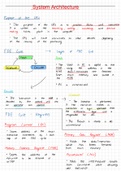
-
Summary notes of GCSE OCR computing - topic: System Architecture
- Summary • 2 pages • 2023
-
- $7.14
- + learn more
This summary note provides an overview of system architecture in computing, focusing on three key concepts: the central processing unit (CPU), the fetch-decode-execute (FDE) cycle, and embedded systems. We start by explaining the role of the CPU in a computer system, including how it carries out arithmetic and logical operations, and how it interacts with memory and other components. We also discuss the different types of CPUs, including single-core, multi-core, and heterogeneous architecture...

How did he do that? By selling his study resources on Stuvia. Try it yourself! Discover all about earning on Stuvia



